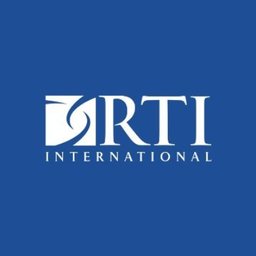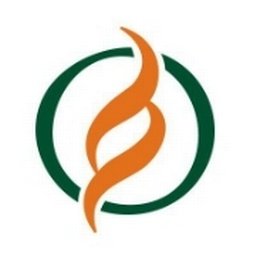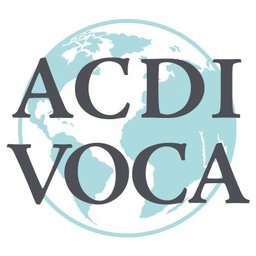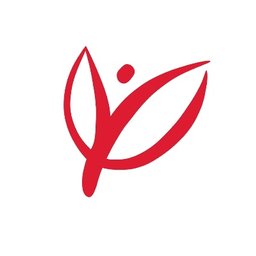Job Opportunities in Nigeria

October 24, 2024
RTI International
Abuja
Monitoring, Evaluation, Research, Learning and Adapting (MERLA) Specialist
Overview
Research Triangle Institute (RTI) has over 30 years’ of experience assisting governments, communities, and the private sector. As a not-for-profit, independent research institute based in North Carolina, USA, RTI has roughly 6,000 employees with global experience implementing international development projects. RTI's Sustainable Growth & Resilience (SG&R) technical unit within the International Development Group brings together RTI experts and capabilities across food security, agriculture, energy, environment, water, governance, and economic opportunity. SG&R will leverage RTI's experience designing and delivering multisectoral programming and technical solutions to respond to climate change, build resilience, and promote economic growth around the world.
IDG’s Global Health Division works in Neglected Tropical Diseases, infectious disease, including TB, HIV/AIDS, and Malaria; global health security, Heath Systems Strengthening - including Health Governance, Health Finance, Human Resources for Health, Capacity Building, and Health Policy and Advocacy; Public-Private Partnerships; and Maternal-Neonatal-Child Heath and Reproductive Health and Family Planning. We address a range of public health problems to reduce disparities, lower disease burdens, and build locally owned sustainable health programs in lower- and middle-income countries.
Project Description
Act to End Neglected Tropical Diseases (NTD)| East (Act | East) is a 5-year program funded by the United States Agency for International Development (USAID) through which RTI supports and expands Neglected Tropical Disease (NTD) control and elimination in priority countries and will further the development of evidence-based policies and standards globally. To learn more about Act | East’s work, visit www.acteast.org.
Position Description
Under the supervision of the Implementation Manager in Nigeria, the MERLA Specialist will ensure quality data collection, analysis, and reporting in Nigeria under the USAID-funded Act to End NTDs | East program. She/he will oversee the monitoring, evaluation, and reporting of program performance and results for country-led activities and assist in facilitating learning using those results. This role requires regular program data analysis and identifying areas for additional support. The MERLA Specialist will work closely with the COP, Implementation Manager, and RTI-HQ MERLA Staff to identify how results will be used for program improvement through programmatic adaptation implementation in Nigeria and ensuring consistency with the project priorities and outcomes as well as supporting the State Ministry of Health in implementing an integrated NTD strategy. RTI International is always seeking to expand its portfolio. This position may be expected to support additional projects if awarded.
The successful candidate will have robust data analysis expertise, excellent data management skills, strong attention to detail, and comfort working with large amounts of data at the same time. They will also be adept at utilizing data and other information for learning and adapting program activities for continual improvement. This individual is expected to collaborate respectfully with multiple team members from diverse backgrounds including NGDO partners and Ministry of Health colleagues.
Responsibilities
Data collection, monitoring, and reporting
Survey development, implementation, and analysis
Program learning and adaptation through data use
Qualifications
Research Triangle Institute (RTI) has over 30 years’ of experience assisting governments, communities, and the private sector. As a not-for-profit, independent research institute based in North Carolina, USA, RTI has roughly 6,000 employees with global experience implementing international development projects. RTI's Sustainable Growth & Resilience (SG&R) technical unit within the International Development Group brings together RTI experts and capabilities across food security, agriculture, energy, environment, water, governance, and economic opportunity. SG&R will leverage RTI's experience designing and delivering multisectoral programming and technical solutions to respond to climate change, build resilience, and promote economic growth around the world.
IDG’s Global Health Division works in Neglected Tropical Diseases, infectious disease, including TB, HIV/AIDS, and Malaria; global health security, Heath Systems Strengthening - including Health Governance, Health Finance, Human Resources for Health, Capacity Building, and Health Policy and Advocacy; Public-Private Partnerships; and Maternal-Neonatal-Child Heath and Reproductive Health and Family Planning. We address a range of public health problems to reduce disparities, lower disease burdens, and build locally owned sustainable health programs in lower- and middle-income countries.
Project Description
Act to End Neglected Tropical Diseases (NTD)| East (Act | East) is a 5-year program funded by the United States Agency for International Development (USAID) through which RTI supports and expands Neglected Tropical Disease (NTD) control and elimination in priority countries and will further the development of evidence-based policies and standards globally. To learn more about Act | East’s work, visit www.acteast.org.
Position Description
Under the supervision of the Implementation Manager in Nigeria, the MERLA Specialist will ensure quality data collection, analysis, and reporting in Nigeria under the USAID-funded Act to End NTDs | East program. She/he will oversee the monitoring, evaluation, and reporting of program performance and results for country-led activities and assist in facilitating learning using those results. This role requires regular program data analysis and identifying areas for additional support. The MERLA Specialist will work closely with the COP, Implementation Manager, and RTI-HQ MERLA Staff to identify how results will be used for program improvement through programmatic adaptation implementation in Nigeria and ensuring consistency with the project priorities and outcomes as well as supporting the State Ministry of Health in implementing an integrated NTD strategy. RTI International is always seeking to expand its portfolio. This position may be expected to support additional projects if awarded.
The successful candidate will have robust data analysis expertise, excellent data management skills, strong attention to detail, and comfort working with large amounts of data at the same time. They will also be adept at utilizing data and other information for learning and adapting program activities for continual improvement. This individual is expected to collaborate respectfully with multiple team members from diverse backgrounds including NGDO partners and Ministry of Health colleagues.
Selected candidates will be invited to complete a timed MERLA test.
Responsibilities
Data collection, monitoring, and reporting
- Leads MERLA activities and ensure that all MERLA activities are implemented in accordance with approved work plan and budget.
- During routine and ongoing data review, communicate any problems with data quality to the relevant program person to ensure accurate data collection and reporting.
- Complete routine project reporting tools and forms according to the program schedule (work planning, two semi-annual reporting periods, and additional as needed), reviewing data with the COP, Implementation Manager, and HQ-based MERLA staff.
- Provide accurate and timely responses to ad hoc data requests.
- Support various field activities to ensure high quality data collection and reporting, identifying any challenges and providing on-the-spot solutions.
Survey development, implementation, and analysis
- Support the development of protocols and reports for disease-specific assessments, data analysis to inform action-oriented conclusions, and the application of learning in collaboration with the FMOH, SMOH, and HQ-based program staff.
- Support the submission of survey outputs which include, but are not limited to, survey reports, raw survey data, and clean datasets.
- Support the development of protocols and reports for data quality activities, including but not limited to data quality assessments, treatment coverage evaluation surveys, and supervisors’ coverage tools in collaboration with the FMOH, SMOH, and HQ-based program staff.
- Support disease specific assessment outcome evaluations in collaboration with the FMOH, SMOH, and HQ-based program staff.
Program learning and adaptation through data use
- Support (COP/SPM/IM/etc.) in ensuring coordination with stakeholders’ (Ministry/sub-partner/etc.) agreement on protocols for data collection and reporting, as well as survey design and implementation.
- Ensure country-level work plans and semi-annual reports appropriately incorporate the relevant data, including accurate and high-quality reporting and using data to inform strategy and activities.
- Analyze/use project M&E data to identify trends/patterns/outliers (e.g., low-performing districts) to discuss with (COP/SPM/IM/HQ MERLA etc.).
- Support stakeholders to regularly input information into and use the national data storage platform, such as the Integrated NTD Database, to submit high quality data to WHO (including Joint Application Package [JAP], Trachoma Elimination Monitoring Form [TEMF], and elimination dossiers), etc.
- Collaborate with in-country and HQ staff to identify opportunities for in-country learning and program adaptation, including operationalizing learning agenda action items.
- Support analysis of MERLA capacity strengthening needs within the national program, synthesize learnings, and collaborate with (COP/SPM/IM/HQ MERLA etc.) on a capacity strengthening strategy to promote in-country learning and adaptation.
- Contribute to cross-program learning by sharing experiences and lessons learned by in-country and HQ staff.
- Provide technical assistance to the MOH to facilitate mainstreaming of MERLA activities, including but not limited to incorporating NTD indicators and reporting into the HMIS system, ensuring continued high-quality reporting of control diseases after elimination, post-validation surveillance, etc.
- Coordinate and facilitate periodic pause and reflect activities, including but not limited to after action reviews post mass drug administration and disease specific assessments, utilizing the Data Action Guide, etc.
- Strengthen the capacity of the MOH to conduct MERLA activities and institutionalize the approaches for said MERLA activities.
- Identify opportunities for operational and programmatic research, provide inputs as needed for development of protocol, data collection, data analysis, and report writing, with guidance from (COP/SPM/IM/HQ MERLA/MOH).
Qualifications
-
Master’s degree in public health, epidemiology, biostatistics, or other analytics field, plus 3 year of experience; or bachelor’s degree plus 5 years of experience in global health/ governance/ nutrition/ environment programs is required. - Experience in quantitatively analyzing M&E data and synthesizing findings for programmatic use is required.
- Proficiency with Microsoft Excel (required) and at least one other statistical package such as: R, SAS, STATA, or SPSS (preferred).
- Experience in designing and implementing qualitative studies, analyzing qualitative data and generating learning for programmatic use (preferred).
- Prior USAID experience preferred.
- Knowledge of MERLA methods and approaches, as learned through coursework, internship, or work experience is required.
- Experience managing electronic data capture and working with real-time monitoring of data (preferred)
- Ability to work in a fast-paced environment and meet deadlines under pressure
- Capacity to prioritize and manage multiple tasks
- Strong organizational skills
- Detail-oriented
- Hard-working
- Proven ability to work effectively in a team-oriented setting while also taking initiative to complete assigned tasks with high quality and within tight timelines
- Technical content experience in one or more of the following areas preferable: health systems strengthening, infectious diseases, NTDs, HIV, maternal and child health, nutrition or gender.
- High level of integrity
- Ability to communicate respectfully in a multi-cultural environment
- An understanding of development issues
- Competency in English (required)
As a global employer of choice, RTI is committed to equity, diversity, inclusion and belonging in the workplace and the communities and markets where we serve our mission. We value diversity of thought, culture, background and perspective and welcome applicants without regard to race, color, religion, sex, age, marital status, sexual orientation, gender identity, national origin, creed, citizenship status, disability, protected veteran status, or any other classification protected by applicable discrimination laws or RTI policy.
We are proud to be an equal opportunity employer. All qualified applicants will receive consideration for employment without regard to race, color, religion, sex, sexual orientation, gender identity, national origin, disability status, protected veteran status, or any other characteristic protected by law.
Click here. to view the EEOC Know Your Rights Poster.
We are proud to be an equal opportunity employer. All qualified applicants will receive consideration for employment without regard to race, color, religion, sex, sexual orientation, gender identity, national origin, disability status, protected veteran status, or any other characteristic protected by law.
Click here. to view the EEOC Know Your Rights Poster.
Latest Job Opportunities
November 10, 2024
Smart Partners Consulting Limited
Cleaning Technician
Lagos
FULL TIME
View DetailsNovember 10, 2024
prepclass
Join Prepclass NG as a PhD-Level Expert Tutor in STEM and Emerging Sciences
Lagos
PART TIME & FULL TIME
View DetailsSimilar Jobs

September 12, 2024
RTI International
MERLA (Monitoring, Evaluation, Research, Learning & Adaptation) Specialist
Abuja
FULL TIME
View Details
May 9, 2024
Management Sciences for Health (MSH)
Director, Monitoring & Evaluation and Learning/USAID/Nigeria/Healthcare Financing and Human Resources for Health/Forecast
Abuja
FULL TIME
View Details
October 22, 2024
Search for Common Ground
Recruitment and Creation of Roster of Enumerators for Search for Common Ground (SFCG) Design, Monitoring, Evaluation and Learning (DMEL) Research Activities in Nigeria
Abuja
View Details

June 19, 2024
Mercy Corps
Monitoring, Evaluation, and Learning (MEL) Director - Abuja, Nigeria Resilience Activity
Abuja
View Details
New Jobs from This Company



September 27, 2024
RTI International
Deputy Chief of Party - Operations (Food Baskets)
Abuja
FULL TIME
View Details
September 24, 2024
RTI International
Resilience and Inclusion Manager (Nigeria Food Baskets)
Abuja
FULL TIME
View Details